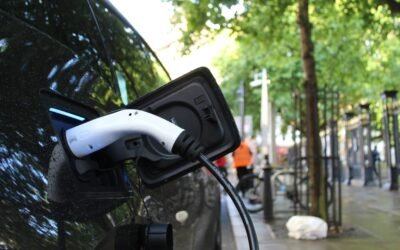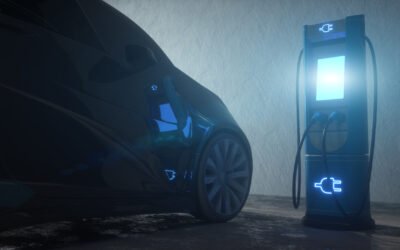Since the launch of electric vehicles, US government has been actively taking initiatives to promote EV usage and installing EV chargers to facilitate the transformation. US has taken a state wise approach to promote the adoption of EVs. For example, the 2012 Zero Emission Vehicle (ZEV) program of California state regulation brought a sharp increase is supply and selling of EV in California and 10 other states.
Today according to French Ministry of Foreign Affairs and International Development , US dominates the market for electric vehicles, followed by Europe and Japan. One such example is market of wireless EV chargers, which presently US dominates, followed by Canada and Mexico in North America.
The market of EVs runs complementary to availability of EV charging spots. As of 2019, US installed around 68,000 charging points (Power Technology Research, EVSE Data) . This effort was taken to promote installation of commercial EV chargers.
On July 2020, California Public Utilities Commission (CPUC) proposed a decision on the proposal submitted by the California Edison (SCE) to invest $442 million to deploy approximately 40,600 electric vehicle charge ports in California. The proposal is under review by SCE and the commission is expected to vote by 27th August on the final decision.
In the meanwhile, actively seeking out opportunities to develop its EV infrastructure, the local government of California partnered with a private company in the City of Richmond on 29 July 2020 to provide free electric vehicle charging spots to public without spending taxpayer money. These charging stations are not funded by taxpayer’s dollars yet would provide the public free electric vehicle charging facility.
With other states having an incentive to promote EV charging system, California seems to be ahead of the game considering the active role of California in immediately taking steps for developing its electric vehicle charging infrastructure. In the coming few years, government of California is expected to take even more aggressive steps towards the installation of commercial electric vehicle charging stations to promote consumption of electric vehicles in the region, providing a business opportunity for OEMs and EV charger manufactures for pushing their EV charging station solutions.
Related Insights
Exploring the European EVCI Services Market Key Players and Emerging Trends
There has been a significant surge in the development of EVCI due to the widespread adoption of EVs in Europe. By 2030, it is expected that Europe will dominate global EV charger I&C and maintenance market and for a 42% and 50% share of the market in 2030,...
Nordics EVCI Market Comparison: Quarterly Growth and Market Dynamics – 2024
This infographic examines the ambitious policies and regional targets that are propelling the growth of Electric Vehicle Charging Infrastructure (EVCI) across the Nordic countries, particularly in Norway, Sweden, Denmark, and Finland. As leaders in electric mobility,...
Electrifying Future: Emerging Trends and Strategic Targets in the Middle East
This infographic presents an overview of the burgeoning electric vehicle (EV) market in the Middle East. It highlights the region's ambitious targets and key trends to shift towards sustainable transportation. It explores how the Middle East is steering towards a...
US Elections: Consequences of a Second Trump Presidency for Energy Sector
The US is making strides to move away from fossil fuels and eventually decarbonize the energy sector. The White House aims to achieve 80% renewable energy generation by 2030 and 100% carbon-free electricity by 2035. On the other hand, for electric vehicles, it has set...
Contact Sales:
Rabail Saeed – Client Relationship Manager
+49 (0)89 12252370



